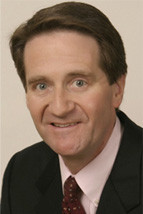Rhinoplasty Recovery
The rhinoplasty recovery period is an incredibly important part of the process. Allowing your nose to heal properly preserves ideal results and helps to avoid complications. Because of this, it’s vital that you follow Dr. Bartlett’s instructions diligently during your rhinoplasty recovery in Boston.
How Long Is the Rhinoplasty Recovery Period?
Rhinoplasty recovery varies based on the exact techniques utilized. For example, it takes at least six weeks for the bones in the nose to heal, so if the bones were altered, this can affect recovery length.
An internal splint, external split, or nasal packing may be in place at the start of the recovery process. This can temporarily make breathing more difficult.
By week two of recovery, most patients can return to work. They will still need to avoid physically taxing activities like heavy lifting and exercise. Sports should also be avoided, since these can lead to nasal trauma, negatively affecting the results of the rhinoplasty procedure.
It can take up to a year for the swelling to completely ameliorate. At this time, you will be able to see your final results.
Tips to Ensure a Speedy Rhinoplasty Recovery Process
Although the recovery process should not be rushed, there are several things you can do to safely speed up recovery:
- Avoid anti-inflammatory drugs – These drugs can dilate blood vessels, resulting in bleeding and bruising, thus prolonging the recovery process.
- Use frozen peas for swelling – Applying a bag of frozen peas to the eye and cheek areas can constrict blood vessels and help reduce swelling.
- Keep head elevated – Keep your head elevated at all times in order to reduce post-surgical swelling. Pillows can help with this while you are sleeping.
- Light walks – Light walks can boost blood circulation, increasing the body’s ability to heal.
- Rest – Plenty of bed rest allows the tissues to heal and helps to avoid stress.
- No nose blowing – Avoid blowing your nose if at all possible, since this can cause pressure and damage to the weakened nasal tissues. If you must blow your nose, do it very gently.
- No smoking or drinking – Smoking and drinking alcohol should be avoided during recovery. These activities can lead to complications and can prolong the healing process.
- Healthy diet – Eating foods that are rich in nutrients can make the tissues heal faster.
- Ask questions – If you have any questions or concerns regarding your rhinoplasty recovery process, don’t hesitate to contact us. This is especially important if you are experiencing complications.
How Painful Is Rhinoplasty Recovery?
The pain level during rhinoplasty recovery is typically characterized as mild to moderate. This can be minimized through pain-control medications as prescribed.
Can I Wash My Face During Recovery?
Unless the surgery involves splints that need to stay dry, most patients can wash their face after a few days. The specific time period depends on the recovery instructions.
Can I Brush My Teeth During Rhinoplasty Recovery?
Gentle brushing is allowed, as long as the patient avoids shaking or otherwise disturbing the nose.
Can I Ice My Nose After Rhinoplasty Recovery?
Icing the nose to bring down swelling is allowed, as long as there is a thin cloth between the nose and the ice. This is because direct skin contact for prolonged periods of time can result in damage. For more details, the patient should follow the recommendations of the surgeon.
Which Foods and Drinks Are Allowed While Healing?
For the first week, the patient should stick to easy-to-chew foods like mashed potatoes, oatmeal, soup, yogurt, and scrambled eggs. Water and other hydrating beverages are also allowed. The patient can resume their normal diet after two weeks, unless they experience trouble or pain while eating hard or crunchy food.
Which Foods and Drinks Should Be Avoided During Recovery?
The patient should avoid hard-to-chew, spicy, and high-sodium foods. Spices can irritate the nose and result in swelling, and salt can also increase swelling.
Are Facial Expressions and Talking Allowed During Rhinoplasty Recovery?
Normal facial movements are fine, but excessive facial expressions and talking should be avoided just as much as eating hard-to-chew foods.
Contact Us to Learn More
If you have any questions regarding rhinoplasty recovery in Boston, contact Richard A. Bartlett, M.D. Cosmetic & Reconstructive Surgery. Get in touch today to set up an appointment for a consultation.


 Recognized as one of “Boston’s Most Trusted Doctors” by Boston magazine, Richard A. Bartlett, M.D. is a board certified plastic surgeon in practice for over 30 years Dr. Bartlett is considered a “doctor’s doctor,” and is a favorite choice of New England medical professionals when referring family and friends for cosmetic and reconstructive plastic surgery in Boston, Massachusetts.
Recognized as one of “Boston’s Most Trusted Doctors” by Boston magazine, Richard A. Bartlett, M.D. is a board certified plastic surgeon in practice for over 30 years Dr. Bartlett is considered a “doctor’s doctor,” and is a favorite choice of New England medical professionals when referring family and friends for cosmetic and reconstructive plastic surgery in Boston, Massachusetts.
